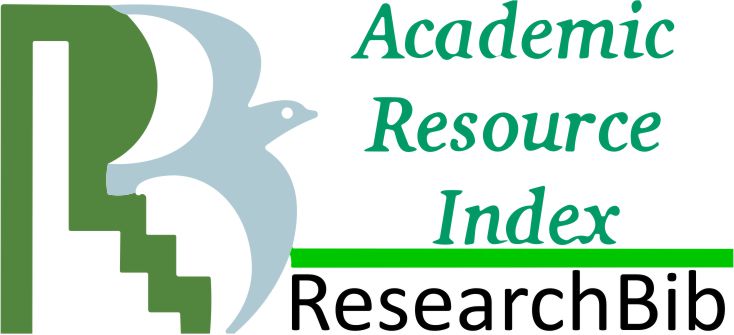DOI
10.21002/jaki.2022.06
Abstract
This study aims to define and analyze the relationship between financial distress, cash holding, and profitability and earnings management with internal control as a moderating variable in relation to six major countries in Southeast Asia (Indonesia, Malaysia, Singapore, Thailand, Philippines, and Vietnam). Earnings management is measured by the Jones model of discretionary accruals. Secondary data sources are used, namely companies listed on the S&P Capital IQ, with 480 observations that fit the criteria. Purposive sampling techniques are employed, with a new sample of observational data from the consumer staples sectors in the six countries covering the period 2016-2020. ASEAN was chosen because of the lack of previous research using this as the research population. The data were processed using the Eviews 11 program. The theoretical basis used in the research is agency theory and signaling theory. The results indicate that financial distress and profitability positively affect earnings management, whereas cash holdings have a negative impact. The study also verifies that internal control as a moderating variable strengthens the negative impact of financial distress and profitability on earnings management, while strengthening the positive impact of cash holdings.
Bahasa Abstract
Penelitian ini memiliki tujuan untuk menguji dan menganalisis hubungan antara financial distress, cash holding, dan profitabilitas terhadap manajemen laba dengan internal control sebagai variabel moderasi untuk enam negara di Asia Tenggara yaitu Indonesia, Malaysia, Filipina, Singapura, Thailand dan Vietnam. Manajemen laba menggunakan proksi Discretionary Accruals (Model Jones). Sumber data penelitian ini menggunakan data sekunder dari perusahaan yang tersedia di S&P Capital IQ dengan total 480 observasi yang telah sesuai kriteria yang digunakan dengan menggunakan teknik purposive sampling dari perusahaan industri consumer staples untuk negara Asia Tenggara, yaitu Indonesia, Malaysia Filipina, Singapura, Thailand dan Vietnam periode 2016 – 2020. Data diolah menggunakan Eviews 11. Dasar teori yang digunakan dalam penelitian ini adalah teori keagenan dan teori sinyal. Penelitian ini mendapatkan hasil bahwa financial distress dan profitabilitas memiliki pengaruh positif terhadap manajemen laba, sedangkan cash holding memiliki pengaruh negatif terhadap manajemen laba. Penelitian ini menunjukkan bahwa internal control sebagai variabel moderasi memperkuat pengaruh negatif, financial distress dan profitabilitas terhadap manajemen laba. Sedangkan, internal control sebagai variabel moderasi memperkuat pengaruh positif cash holding terhadap manajemen laba.
References
Adi, S. W., W. A. P. Putri, and W. D. Permatasari. 2020. Profitability, Leverage, Firm Size, Liquidity, and Total Assets Turnover on Liquidity, and Total Assets Turnover on Real Earnings Management (An Empirical Real Earnings Management (An Empirical Study on the Mining Company Classification Study on the Minin. Riset Akuntansi Dan Keuangan Indonesia. 5 (2), 129–140.
Agustia, Y., and E. Suryani. 2018. Pengaruh Ukuran Perusahaan, Umur Perusahaan, Leverage, dan Profitabilitas Terhadap Manajemen Laba. 10 (1), 63–74.
Altman, E. I., E. Hotchkiss, and W. Wang. 2019. Corporate Financial Distress, Restructuring, and Bankruptcy. In Corporate Financial Distress, Restructuring, and Bankruptcy.
Anasta, L. 2019. The Effect of Profitability and Tax Avoidance on Profit Management and Its Impact on Company Value. European Journal of Business and Management, 11 (15), 32–46.
Chairunesia, W., P. R. Sutra, and S. M. Wahyudi. 2018. Pengaruh Good Corporate Governance Dan Financial Distress Terhadap Manajemen Laba Pada Perusahaan Indonesia Yang Masuk Dalam Asean Corporate Governance Scorecard. Jurnal Profita, 11 (2), 232.
Chairunnisa, Z., M. Rasmini, and M. B. Alexandri. 2021. Pengaruh Financial Distress Terhadap Manajemen Laba Pada Perusahaan Sub Sektor Telekomunikasi Yang Terdaftar Di Bei Periode 2015-2019. Jurnal Ekonomi Dan Bisnis, 17 (3), 387–394.
Chen, H. et al. 2020. Internal Controls, Risk Management, and Cash Holdings. Journal of Corporate Finance, 64 (February 2019).
Dechow, P. M et al. 1995. Detecting Earnings Management. 70 (2), 193–225.
D’Mello, R., X. Gao, and Y. Jia. 2017. Internal Control and Internal Capital Allocation: Evidence From Internal Capital Markets of Multi-Segment Firms. In Review of Accounting Studies, 22 (1).
Doyle, J., W. Ge, and S. McVay. 2007. Determinants of Weaknesses in Internal Control Over Financial Reporting. Journal of Accounting and Economics, 44 (1–2), 193–223.
Farooq, U. et al. 2018. A Three-Stage Dynamic Model of Financial Distress.
Gill, A. and C. Shah. 2011. Determinants
of Corporate Cash Holdings: Evidence from Canada. International Journal of Economics and Finance, 4 (1), 70–79.
Jacoby, G., J. Li, and M. Liu. 2019. Financial Distress, Political Affiliation and Earnings Management: The Case Of Politically Affiliated Private Firms. European Journal of Finance, 25 (6), 508–523.
Jamshedy-navid, B. 2010. A clear look at Internal Controls. SSRN Electronic Journal.
Jensen, and Meckling. 1976. Racial diversity and its asymmetry within and across hierarchical levels: The effects on financial performance. Journal of Financial Economics 3, 72 (10), 1671–1696.
Kasmir. 2019. Analisis Laporan Keuangan. Edisi Pertama. Cetakan Keduabelas. PT Raja Grafindo Persada. Jakarta
Kieso, D. 2020. Intermediate Accounting IFRS. https://wileysgp.ipublishcentral.net/reader/52914/&returnUrl%3DaHR0cHM6Ly93aWxleXNncC5pcHVibGlzaGNlbnRyYWwubmV0L2V4cGxvcmU7c2VhcmNoVGV4dD1LSUVTTzttYWluU2VhcmNoPTEvcHJvZHVjdC1kZXRhaWxzLzUyOTE0?epub=https%3A%2F%2Freader
Khuong, N. V., N.T. Liem, and M. T. H. Minh. 2020. Earnings management and cash holdings: Evidence from energy firms in Vietnam. Journal of International Studies, 13 (1), 247–261.
Kusmiyati, S. D., and M. Z. Hakim. 2020. Pengaruh Ukuran Perusahaan, Profitabilitas, Cash Holding, Debt To Equity Ratio Dan Net Profit Margin Terhadap Perataan Laba (Studi Empiris Pada Perusahaan Manufaktur Sektor Industri Barang Konsumsi yang Terdaftar di Bursa Efek Indonesia Tahun 2014-201. 13 (April), 58–72.
Lessambo, F. I. 2018. Financial Statements. In Financial Statements, (119–136).
Lestani. G. Dwi, and W. Widarjo. 2021. Kompensasi Bonus Dan Manajemen Laba Riil: Peran Moderasi Komite Audit 1,2. 5 (2), 212–224.
Lestari, K. C., and S. O. Wulandari. 2019. Pengaruh Profitabilitas terhadap Manajemen Laba. Jurnal Akademi Akuntansi, 2(1).
Li, Y. et al. 2020. Journal Of Contemporary Financial Distress, Internal Control, And Earnings Management: Evidence from China. Journal of Contemporary Accounting & Economics, 16(3), 100210.
Putri, B. N. L., and S. Rachmawati. 2018. Analisis Financial Distress dan Free Cash Flow dengan Proporsi Dewan Komisaris Independen sebagai Variabel Moderasi Terhadap Manajemen Laba. Jurnal Keuangan Dan Perbankan, 14 (2), 54–61.
Qadri, R. A., and N. A.Najiha. 2021. “Tiga Wajah” Financial Distress: 8 (2), 171–200.
Rhyne, R. G., and E. F. Brigham. 2018. Fundamentals of Financial Management. The Journal of Finance, 34 (5).
Ross, S. A. 1977. The Determination of Financial Structure: The Incentive Signaling Approach. Bell Journal of Economics and Management Science, 8 (1), 23-40.
Saniamisha, I. M., and T. F. Jin. 2019. Faktor-faktor yang Mempengaruhi Manajemen Laba. 21 (1), 59–72.
Santosa, D. F., L. Anggraeni, and K. Pranowo. 2020. Determinan Financial Distress Perusahaan Subsektor Ritel Di Bursa Efek Indonesia. Jurnal Aplikasi Bisnis dan Manajemen, 6 (1), 128–141.
Schroeder, R. G. 2019. Financial Accounting Theory and Research. In Wiley Encyclopedia of Management, (1–6).
Scott, W. R. 2009. Financial Accounting Theory: Pearson.
https://www.pearson.com/uk/educators/higher-education-educators/program/Scott-Financial-Accounting-Theory-5th-Edition/PGM928250.html
Solimun, A., and A. A. R. Fernandes. 2020. Metodologi Penelitian Kuantitatif Perspektif Sistem: Mengungkap Novelty Dan Memenuhi Validasi Penelitian. In Universitas Brawijaya Press.
Sugiyono, D. 2013. Metode Penelitian Kuantitatif, Kualitatif, dan Tindakan.
Sun, L., and O. Al. Farooque. 2019. An Exploratory Analysis of Earnings Management Practices in Australia and New Zealand. International Journal of Accounting and Information Management, 19 (3), 120–124.
Ufo, A. 2015. Determinants of Financial Distress in Manufacturing Firms of, 9–17.
Vu, Q., and N. T. T. Nga. 2022. Does the implementation of internal controls promote firm profitability? Evidence from private Vietnamese small- and medium-sized enterprises (SMEs). Finance Research Letters, 45.
William R. Kinney, J. 2016. Decision Theory Aspects of Internal Control System Design / Compliance and Substantive Tests. 13, 13–29.
Xu, X., and Y. Li. 2018. Local Corruption And Corporate Cash Holdings: Sheltering Assets Or Agency Conflict? China Journal of Accounting Research, 11 (4), 307–324.
Young, S. D. 2018. Corporate Financial Reporting and Analysis. https://wileysgp.ipublishcentral.net/reader/1635/
Recommended Citation
Putri, Maya and Ary Binsar Naibaho, Eduard
(2022)
"THE INFLUENCE OF FINANCIAL DISTRESS, CASH HOLDINGS, AND PROFITABILITY TOWARD EARNINGS MANAGEMENT WITH INTERNAL CONTROL AS A MODERATING VARIABLE: THE CASE OF LISTED COMPANIES IN ASEAN COUNTRIES,"
Jurnal Akuntansi dan Keuangan Indonesia: Vol. 19:
No.
1, Article 6.
DOI: 10.21002/jaki.2022.06
Available at:
https://scholarhub.ui.ac.id/jaki/vol19/iss1/6












